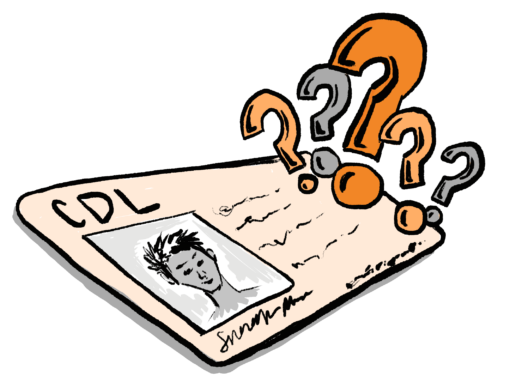What is a CDL License? Unlocking a World of Opportunities

Have you ever wondered what it takes to drive those big commercial vehicles you see on the highways? Or have you been considering a career change that offers flexibility and the chance to explore new places? If so, you might be curious about what a CDL license is and how it can impact your career positively. In this blog, we’ll dive into the world of commercial driving, exploring the purpose of a CDL license, its unique features, and the professional opportunities it offers.
What is a CDL License?
A CDL, or Commercial Driver’s License, is a special driver’s license that allows you to operate large, heavy, or hazardous material-carrying commercial vehicles. CDLs are issued by states but adhere to federal regulations set forth by the Federal Motor Carrier Safety Administration (FMCSA). These licenses are designed to ensure that drivers of commercial vehicles possess skills, knowledge, and safety training to operate them.
The Purpose of a CDL License
The primary purpose of a CDL license is to regulate and maintain safety on the roads. This is done by ensuring that only qualified individuals can operate commercial vehicles. Obtaining a CDL license requires candidates to meet specific training requirements, pass written and skills tests, and maintain a clean driving record. By implementing these standards, the CDL licensing process helps create a safer environment for all road users.
What Makes a CDL Unique
A CDL sets you apart from regular drivers because it demonstrates your specialized training and ability to handle large, heavy vehicles or those carrying hazardous materials. This expertise opens up a range of career opportunities in a unique and growing industry. Additionally, CDL licenses are further broken down into three classes (Class A, B, and C), each with its specific set of vehicle types and requirements. This classification system allows you to tailor your license to the specific type of commercial vehicle you want to drive, offering even more versatility in your professional choices.
Professional Opportunities with a CDL License
A CDL can pave the way for a rewarding career in the commercial driving industry. With this license, you can work in various sectors such as logistics, construction, waste management, and public transportation. Some of the most common job titles include:
- – Long-haul truck driver
- – Bus driver
- – Delivery driver
- – Construction equipment operator
- – Hazmat driver
The positive impact of a CDL license on your professional career is undeniable. Not only does it offer job stability and competitive salaries, but it also provides the opportunity for personal growth and exploration, as you may travel extensively throughout the country.
Getting Your CDL
If you’re ready to embark on a new career journey and obtain your CDL license, it’s essential to understand the training and requirements involved in the process. Our comprehensive guide on ELDT Training outlines everything you need to know to get started.
For further resources on online driver training, check out Vdrive’s blog post on the benefits of online drivers’ education. This can provide you with valuable insights into online driver education and help you make informed decisions about your training.
Additionally, our Become a Truck Driver FAQ can help answer any lingering questions about pursuing a career in commercial driving. This FAQ section covers a wide range of topics, from the requirements and qualifications needed to become a truck driver to the lifestyle and benefits associated with the profession.